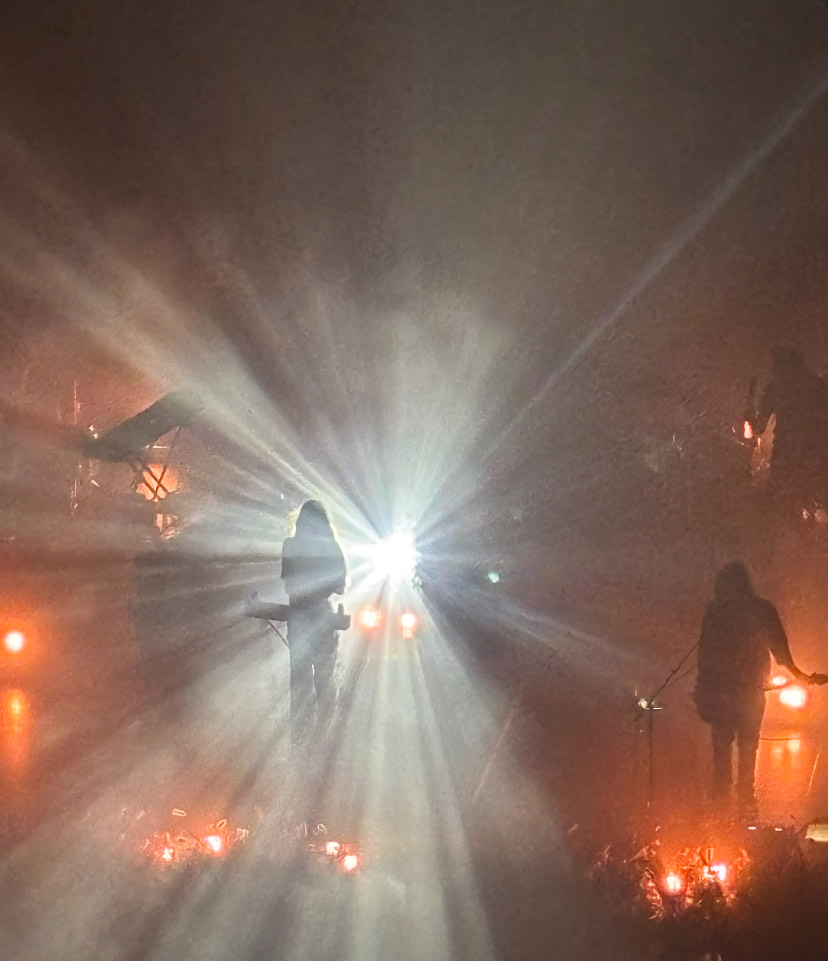
Every week, The Mac Weekly interviews one senior majoring in an artistic field at Macalester. This week, we spoke with Alana Horton, a theater major.
Where are you originally from?
Northampton, Massachusetts.
Do you have any other majors besides Theater?
I am an English Literature major as well.
In what other ways are you involved on or off campus?
Most of my involvement is in the Macalester theater department, or off campus in the Twin Cities. I work at Bedlam Theater doing publicity and design and marketing for them, and in the summers especially acting with local companies. Unfortunately the theater major doesn’t leave that much time for extracurriculars. It tends to sort of cut in right at the time that you’d do other things…but I used to be a member of Bad Comedy!
How’d you get involved with off campus work?
The Twin Cities theater scene is really alive, hopping, so I’ve always been interested in it. It’s sort of been a long process. I mean, it’s been a long process becoming a theater major, anyways. I started off being like, “I’m never going to major in this department.“ And then I was like, “I’ll do some shows”, and then I was like, “I guess I’ll minor, but I’ll never major.” And then I was like, “Okay, I’ll major, but I’m not giving my whole life to the department!”
I feel like the off-campus work happened sort of the same. I did a show in the Minnesota Fringe Festival, with my friend Rob Gelberg [’14], the summer after my sophomore year here. And through that [I] made a lot of connections, which sort of developed over the year. And so this summer I did Fringe again, and was in a One Minute Play Festival at Mixed Blood last spring. I did Bedlam’s Ten Fest as well. So just a lot of community-involved things, not so much professional theater.
What is the best class you’ve taken within your major?
Wow. I feel like they’ve all been useful in very different ways. I think though that my favorite class I’ve taken is definitely Physical Approaches with Bob Rosen. [It] is a class basically about clowning and physical theater. So I learned how to juggle and tight rope and mime and create your own pieces from nothing with physical comedy—which was just amazing. And now my dad is very proud of me because we can juggle together.
I’ve heard that you’ve been directing “I/Macalester.” Can you talk a little bit about how you became interested in doing your own show or how you developed the show itself?
It’s funny because I talked before about how I said I wasn’t going to become a minor and then a major. And then I was like, “I’m definitely, no matter what I’m doing, I’m not going to do a directing concentration.” Until last spring, when I was like, “Okay, I’ve taken a directing class,” which is required for the major, and I was like, “Okay, fine, I’ll direct”.
So [the production] came out of a lot of the experiences that I’ve done working with the Macalester Archives. The last two summers I’ve done oral history interviews with members of Macalester staff, faculty, professors, students. That’s been really intriguing to me because I don’t think a lot of the student body has much of a conception of some of the history of the spaces that we are in. So the piece sort of came out of that, originally. I used oral history interviews and archived documents to create the first two pieces. It moves—it starts in Wallace, and we’re taking the common room and turning it back into a dining hall, which is sort of what it used to be. So it’s a very small audience and everyone will be “in the dining hall” drinking tea together watching the show. It is a lot of the voices of women from Macalester across times, speaking about their experiences in that first section.
The second part is in Old Main, in the war memorial space. There [are] two plaques on the wall in the stairwell. So we’re taking the audience there and having sort of, again, various actors becoming people from different eras of Macalester history. Like, we have a member of the air force squadron that was housed in Kirk in 1944 to 1946. Most people have no idea that that existed on campus.
And then the last part, I didn’t write—the cast and I have actually devised it over the process of three weeks—it’s in the furniture storage. So that just came out of our explorations with objects and the furniture in there. And we just created a 20-minute piece. So the inspirations for the piece are sort of all over the place in a way, but I think it’s coming together as a really cohesive, interesting experience.
Why in senior year of high school did you choose to come to Macalester?
Well, my father is a liberal arts professor; he teaches statistics. So when I decided to start looking at colleges, he gave me a big book marked with sticky-notes of all the colleges he thought I should look at—and Macalester was one of them. And to be honest it had more to do with the city than anything else, that I came here. Because the day I visited it was just terrible. You know, it was sleeting, and it was a Monday before midterms, in the spring, when everyone is just not excited to be on campus. But all and all, I’m really happy I’m here.
How did you become interested in art to begin with?
I think I’ve always been interested in art. It’s just like the type of art has definitely changed as I’ve gotten older. I always thought I was going to go to school for visual arts— that was my dream up until junior year of high school. So I find it really odd sometimes, looking at the work I’m doing now, molding bodies instead of other materials! But, no, I think it’s been there for a very long time.
How do you plan to use what you learned here, [whether it be in the theater department or in other departments], in what you do once you do leave Macalester?
Well I definitely plan to stay in the theater community, hopefully both as a director and as an actor, or just doing arts administration roles. It’s the community I really love. I like producing work and I think the challenge is figuring out how theater fits into the art world right now, especially with audience declining across all sort of forms of live performance. What is it that brings people back and what makes it worth seeing still?







Jason Oliver • Sep 11, 2019 at 7:42 pm
Post writing is also a excitement, if you know afterward you can write otherwise it is difficult to write.
James Oliver • Sep 10, 2019 at 1:36 pm
Very nice post. I just stumbled upon your blog and wished to mention that I have truly enjoyed surfing around your blog posts. After all I’ll be subscribing to your feed and I’m hoping you write once more soon!
Joanne Arnold • Sep 7, 2019 at 4:05 am
Ahaa, its nice conversation regarding this article here at this webpage, I have read all that, so now me also commenting at this place.